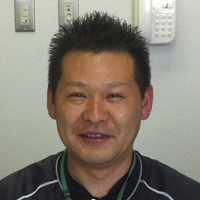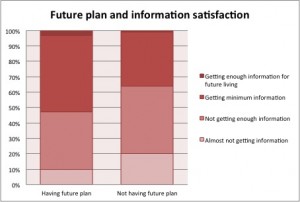Change the relationship between cities and countryside by human resource investment

Mitsuaki Aoyagi, Chief manager of Disaster Relief Team, the Nippon Foundation. Took a part in “ROAD project” of the Nippon Foundation immediately after the earthquake and tsunami, now promoting projects with many companies and non-profits.
Q.What is the directions of future support for reconstruction?
We have two directions. For what is need now, the first is support for reconstruction of local industry, especially for the fishing and seafood processing industries. Immediately after the earthquake and tsunami, we financed fishing industries without interest and provided facilities for seafood processing industries. The reconstruction of local industry gives people opportunities to work. We believe that such economical recovery has direct effect on the energy of each town.
Another direction is far-sighted investment on human resource. It is educational support for local people who will manage reconstruction effort for medium-to-long period of time. We are going to add more projects in this area.
Q.Example for human resource investment?
One example is a career experience program for high school students in Ishinomaki in Miyagi Prefecture, which we worked with Philip Morris Japan. Another example is a scholarship program offered to GLOBIS Graduate School of Management at Sendai as collaboration with Daimler Japan. This program offer opportunities for business education for local business leaders who are challenging in reconstruction and social innovation in Tohoku area.
We have a challenging goal to change the relationship between cities and countryside by investing for human resource. From a society where countryside benefit from cities by offering their local resources, to a society where countryside become independent from cities and wisely use resources of cities. For this goal, we need more talent in country side.
Q.What change do you feel in corporate sponsors as the time passes by?
First, some companies started focusing the themes on their program. Second, as CSR resources allocated to reconstruction is dwindling, companies are seeking programs which use their own business resources such as the distribution network instead of simple funding.
We, the Nippon Foundation, marked our 50th anniversary and set our mission as “Being a hub for social innovation”. We hope that our ability for planning and execution accumulated by on-site experiences will help us realize social innovation, as well as matching needs of both companies and Tohoku region.
Q.What is necessary for continuity of non-profits working in Tohoku?
Because of dwindling resources, the number of active non-profits is being limited. However, there are still many demands to care. That means they are required to enhance their capabilities by hiring enough employees, improving management skill and so on.
Moreover, the importance of project evaluation is increasing. Even though it is difficult to visualize the qualitative effect of supporting activities, the efforts for analysis, evaluation and disclosure should be devoted continuously.
One example is our salon project to support evacuating mothers and children. For this project, we set a goal “mothers and children being healthy both physically and mentally”. We are working with consignee on-site non-profit to make some classified index to enable evaluation. We hope these efforts would provide growth opportunity for on-site players.
translation by Megumi Maruyama
Tweet




